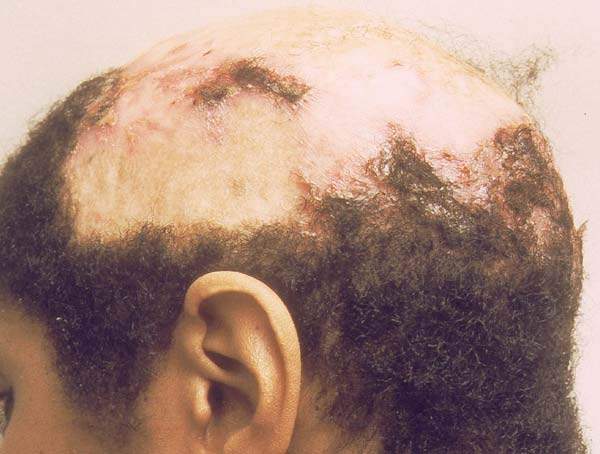Cicatricial Alopecia is also known as scarring alopecia and it falls among the complicated cases of hair loss. Almost 4 % of alopecia patients are diagnosed with Cicatricial alopecia. This particular type of hair loss is common worldwide and it affects men and women beginning from children to adults.
What is Cicatricial Alopecia?
It is a rare type of hair disorder or hair loss where hair follicles are damaged and destroyed, which leads to the formation of small patches on the scalp. With time, the patches increase in sizes, leaving one bald or with scar tissue.
Two types of immune cells are said to be responsible for the destruction of the hair follicles and they are;
-
Lymphocytes
-
Neutrophils
Each may lead to scarring alopecia or both may play the role of destroying the hair follicles
Symptoms of Cicatricial Alopecia
-
There is speedy loss of hair
-
Severe burning in the targeted areas
-
Itching and pain in the targeted areas
-
In some patients, there are no symptoms
Diagnosis
-
An examination of the scalp hair is necessary
-
A microscopic evaluation may be taken
-
The doctor may require a biopsy to be taken
-
The doctor will ask about your family history
-
Will also ask you about prevailing symptoms
Treatment for Cicatricial Alopecia
There is no permanent treatment for Cicatricial alopecia but immediate treatments can help to reduce its effects on the patient.
-
Antibiotics can be used
-
Immunosuppressive medicines
-
Anti-inflammatory medicines
-
Thiazolidinediones medications
Each treatment is provided depending on the cause of Cicatricial Alopecia but the treatment will take a long period of time to have an effect on the affected region.
Cicatricial Alopecia treatment in India can also be performed by a hair transplant provided that it had remained inactive for more than 2 years.

